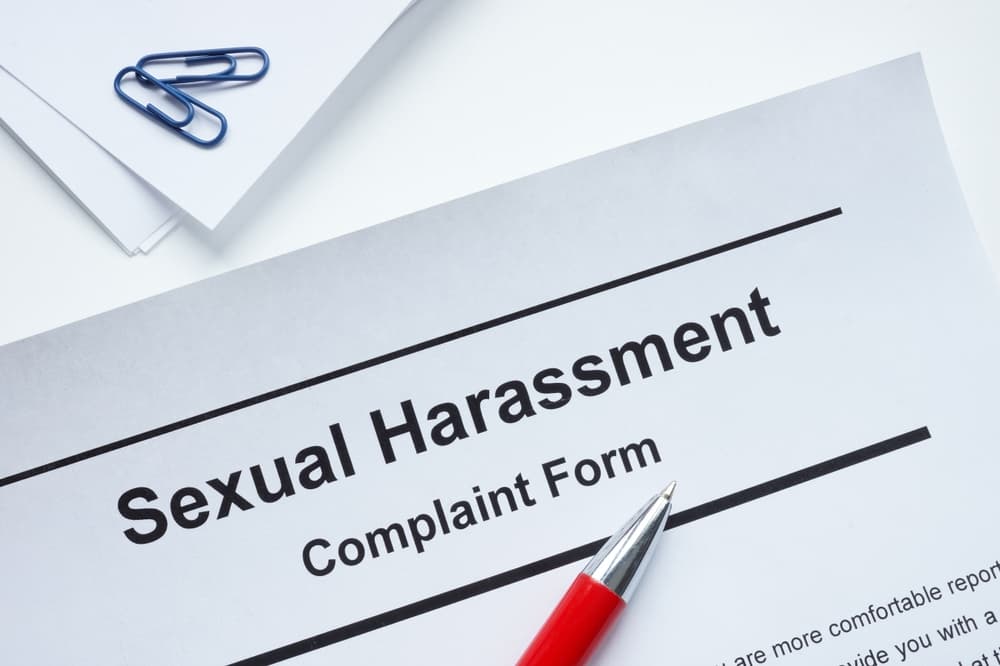The fight against sexual harassment in educational institutions has reached a significant milestone in California. In response to alarming findings of widespread mishandling of sexual misconduct claims, two critical laws aimed at strengthening the sexual harassment policies across the California State University (CSU) system were enacted this month. These new regulations reflect a broader commitment to fostering safer and more supportive environments for all students, especially those from marginalized communities.
Background and Need for Change

The impetus for these legislative changes was the series of scandals that rocked the CSU system. San Jose State University (SJSU), the oldest campus in the CSU network, became a focal point of national attention when investigations revealed that the sports medicine director, Scott Shaw, had sexually harassed numerous student-athletes under his care. The fallout from this scandal was extensive, leading to resignations at the highest levels and forced the university to pay more than $5 million to over two dozen athletes Shaw had treated.
Further scrutiny from the U.S. Department of Justice and an independent investigation by an independent law firm exposed systemic failures in handling sexual misconduct complaints across the entire CSU system.
The Cozen O’Connor report, released in July 2023, painted a grim picture of inadequate responses and procedural inconsistencies that allowed many cases of sexual misconduct to go unaddressed. These findings were corroborated by a separate report from the California State Auditor, which highlighted similar issues and provided a set of recommendations for improving the university’s policies and practices.
Key Provisions of the New Laws
In response to these disturbing revelations, legislative efforts to enact stricter and more comprehensive policies were signed into law, introducing several significant changes:
AB 1790 by Assemblyman Damon Connolly: This law mandates that CSU must implement the recommendations from the State Auditor’s report by July 1, 2026. Key provisions include:
- Developing standardized guidelines for all formal investigations into allegations of sexual harassment by each CSU campus and the chancellor’s office, including how to perform and structure the analysis to establish whether sexual harassment has occurred.
- Developing a policy for each CSU campus and the chancellor’s office that ensures they are able to maintain a process for tracking key dates related to the timeliness of all sexual harassment cases and conducting investigations in a timely manner.
- Establishing systemwide requirements for each CSU campus and the chancellor’s office to address conduct that is unprofessional but does not meet the threshold of sexual harassment.
- Developing a policy to ensure current and former employees found to have engaged in sexual harassment, including those who have received less severe discipline than termination, such as suspension or demotion, are not given official positive references for employment.
- Requiring that each CSU campus and the chancellor’s office use the same case management system and track data consistently in their files for each sexual harassment case.
- Issuing comprehensive best practices, including how campuses should survey their communities and increase awareness of options for reporting sexual harassment for each CSU campus.
- Requiring the chancellor’s office to conduct regular compliance reviews of each CSU campus to determine whether they are complying with the law, CSU policy, and best practices in regards to sexual harassment policy.
AB 2608 by Assemblyman Jesse Gabriel: This legislation expands the scope of sexual assault prevention training at CSU campuses. It includes:
Effective September 1, 2024
- Each campus of the California Community Colleges and the CSU shall post educational and preventive information on sexual violence and sexual harassment on its campus internet website.
- Each campus of an independent institution of higher education, a private postsecondary educational institution, and the University of California (UC) is requested to post educational and preventive information on sexual violence and sexual harassment on its campus internet website. The educational and preventive information shall include, but not limited to, all of the following:
- Common facts and myths about the causes of sexual violence and sexual harassment.
- What constitutes sexual violence and sexual harassment, including information on how to file internal administrative complaints with the institution of higher education and how to file criminal charges with local law enforcement officials.
- The availability of, and contact information for, campus and community resources for students who are victims of sexual violence and sexual harassment.
- Methods of encouraging peer support for victims and the imposition of sanctions on offenders.
- Information regarding campus, criminal, and civil consequences of committing acts of sexual violence and sexual harassment.
Effective September 1, 2026, these topics must be covered in addition to those above:
- How to recognize if a person is at risk of alcohol- and drug-facilitated sexual assault, including, but not limited to, common symptoms following alcohol and drug consumption and intoxication.
- Effective measures that can be taken to prevent involuntary alcohol and drug consumption and ways to respond to circumstances where a person may be involuntarily intoxicated and at risk for alcohol- and drug-facilitated sexual assault.
- Common facts and myths regarding alcohol- and drug-facilitated sexual assault.
- Information related to confidential support and care resources for situations that arise as a result of an act of sexual violence or sexual harassment, or both, including, but not limited to, contact information and the availability of confidential medical and transportation services, forensic examination sites, and, to the extent available, rape crisis centers on campus or within the surrounding community of the campus.
The Broader Legislative Effort
The two new laws are part of a larger 12-bill package aimed at tackling sexual harassment and discrimination in California’s higher education system. Some of the additional measures under consideration include:
- Establishment of a Systemwide Office of Civil Rights: This office would oversee policies and ensure uniformity in handling sexual harassment and discrimination cases across CSU and UC campuses.
- Implementation of a Title IX Office: Dedicated offices at each campus to address and prevent sexual harassment, ensuring compliance with federal Title IX regulations.
- Targeting “Pass the Harasser” Policies: AB 810, proposed by Assemblywoman Laura Friedman, seeks to eliminate the practice where individuals found guilty of sexual harassment can move to other institutions without disclosure of their past misconduct. This bill requires applicants to disclose any previous findings of sexual misconduct, thereby increasing transparency and accountability in hiring practices.
Impact and Future Directions
The enactment of these laws is a crucial victory for survivors of sexual harassment and assault in the CSU system. They not only aim to rectify past injustices but also set a precedent for other educational institutions across the country. By standardizing investigation processes, enhancing training programs, and ensuring robust support systems, California is taking decisive steps towards creating a safer and more equitable academic environment.
However, the journey is far from over. The legislative pushback and ongoing resistance to comprehensive Title IX protections underscore the challenges that lie ahead. As we celebrate the 52nd anniversary of Title IX, it is essential to recognize the critical intersection of reproductive justice, gender rights, and civil liberties. The forthcoming Title IX regulations from the Biden-Harris administration, set to take effect on August 1, 2024, aim to restore and strengthen protections for students, particularly those from historically marginalized communities.
These new regulations promise a more equitable and supportive environment for all students, acknowledging the diverse experiences and unique challenges faced by LGBTQ+ individuals, pregnant and parenting students, and others whose identities intersect with multiple forms of marginalization. However, the fight to protect these regulations continues, with at least 15 states attempting to overturn them through the Congressional Review Act.
Conclusion
The signing of these new laws in California marks a pivotal moment in the ongoing effort to combat sexual harassment in higher education. By holding perpetrators accountable, supporting survivors, and fostering a culture of respect and safety, these measures provide a blueprint for other states to follow. As we move forward, it is crucial to remain vigilant and committed to upholding the highest standards of justice and support in our educational institutions. The journey towards a safer and more inclusive environment for all students is a collective responsibility, and these new laws are a testament to what can be achieved through determined advocacy and legislative action.
Schedule a Free Case Evaluation Today!
Sources:





